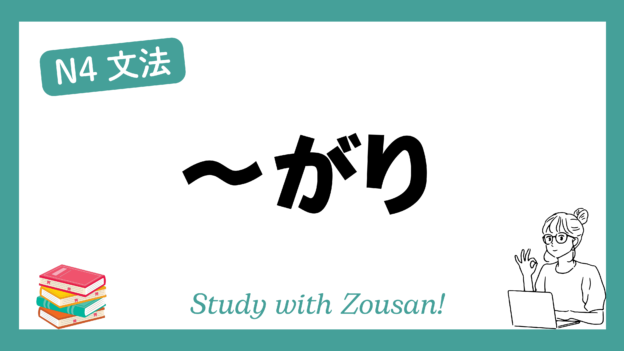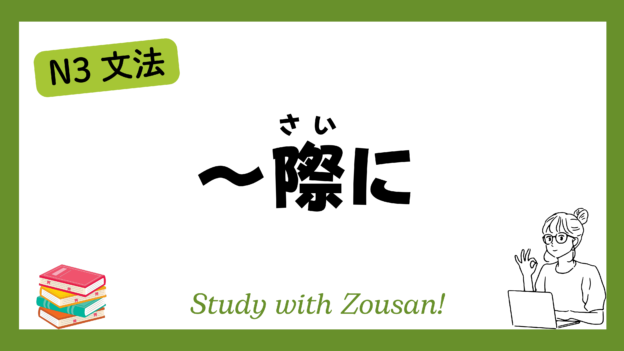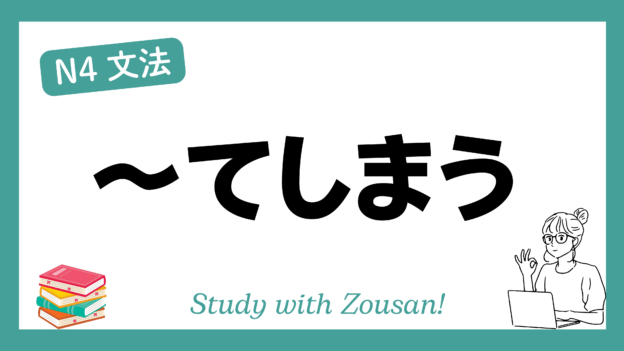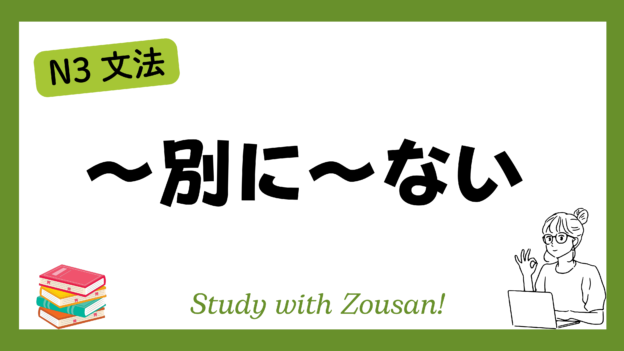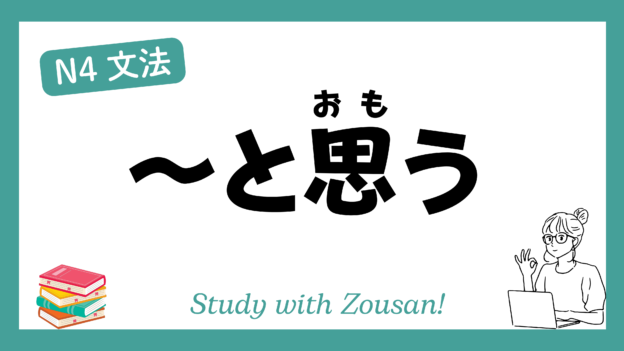N4文法:~がり
Meaning: “Tends to…” / “Prone to…” / “Sensitive to…”
~がり is used to describe a person’s tendency or characteristic, especially when they frequently experience a certain emotion or feeling. This structure is often paired with words that describe emotions or feelings to indicate that the person easily feels that way or has a tendency to do so.
※Note:
・~がり is often combined with nouns that describe emotions (寂しがり, 恥ずかしがり) or states (寒がり, 暑がり) to describe a person’s tendency or characteristic.
・This structure is mainly used to describe inherent traits or frequent feelings of others, not the speaker themselves.
・~がり is not typically used to describe the speaker’s own characteristics; instead, it’s mainly used to describe someone else’s tendencies.
Structure:
| な-adjective | + がり |
| い-adjective |
Example:
-
-
-
🌟 彼は寒がりです。
(かれ は さむがり です)
He is sensitive to the cold. -
🌟 彼女は恥ずかしがりです。
(かのじょ は はずかしがり です)
She is shy. -
🌟 弟は寂しがり屋です。
(おとうと は さびしがり や です)
My younger brother tends to get lonely. -
🌟 彼女は暑がりなので、夏が苦手です。
(かのじょ は あつがり なので、なつ が にがて です)
She is sensitive to heat, so she doesn’t like summer. -
🌟 彼は怒りっぽいが、根は優しい人です。
(かれ は おこりっぽい が、ね は やさしい ひと です)
He tends to get angry easily, but he is kind at heart. -
🌟 彼女は甘えたがりです。
(かのじょ は あまえたがり です)
She tends to be clingy. -
🌟 彼は忘れたがりです。
(かれ は わすれたがり です)
He tends to forget things easily. -
🌟 母は心配しがりです。
(はは は しんぱい しがり です)
My mother tends to worry a lot. -
🌟 彼は自慢したがりです。
(かれ は じまん したがり です)
He tends to brag. -
🌟 子供は好奇心が旺盛で、質問したがりです。
(こども は こうきしん が おうせい で、しつもん したがり です)
Children are curious and tend to ask a lot of questions.
-
-



